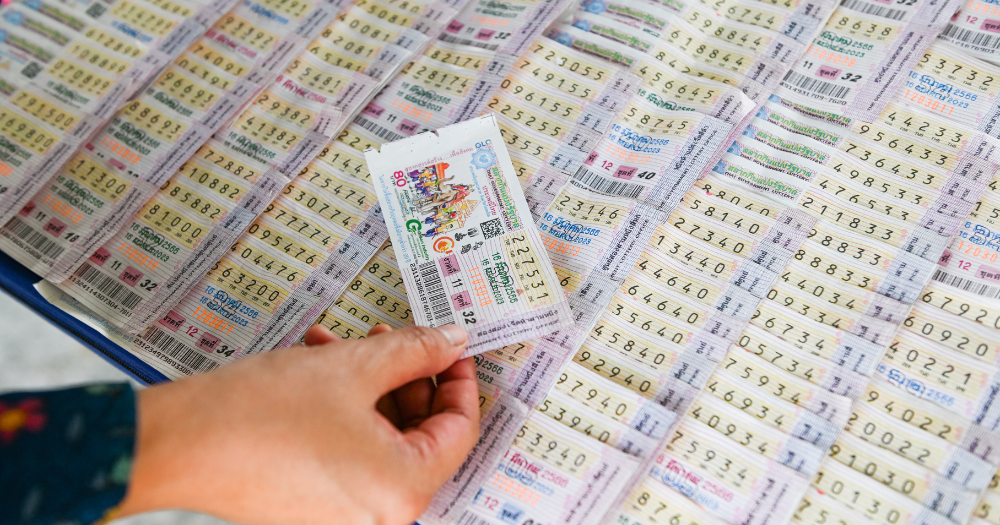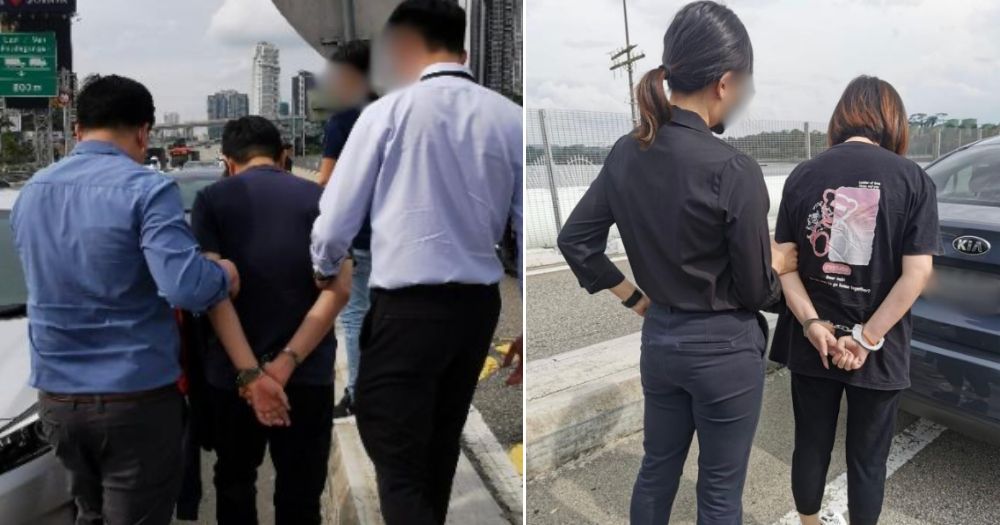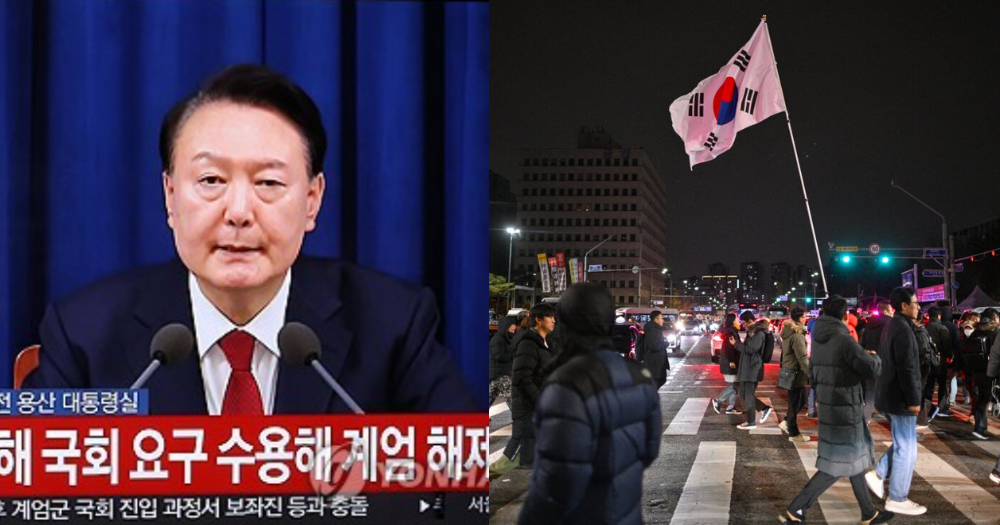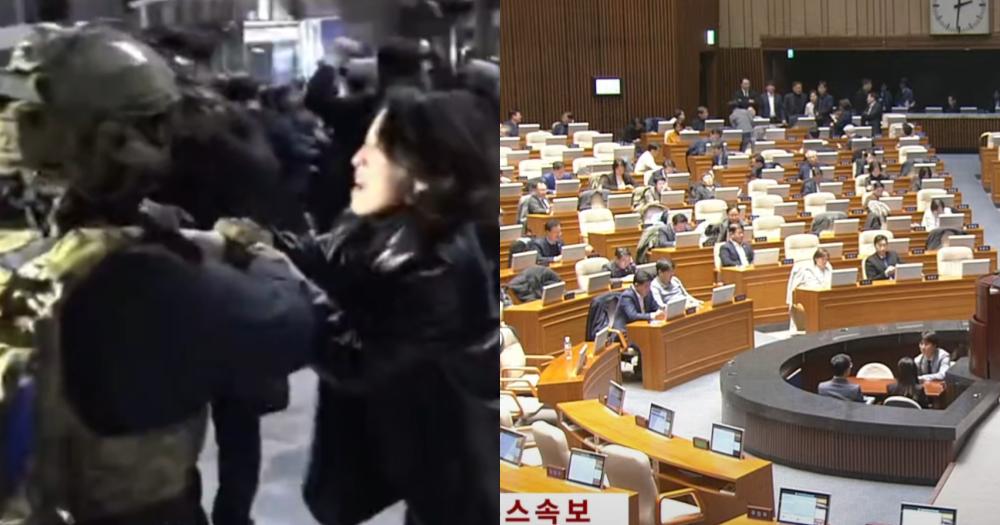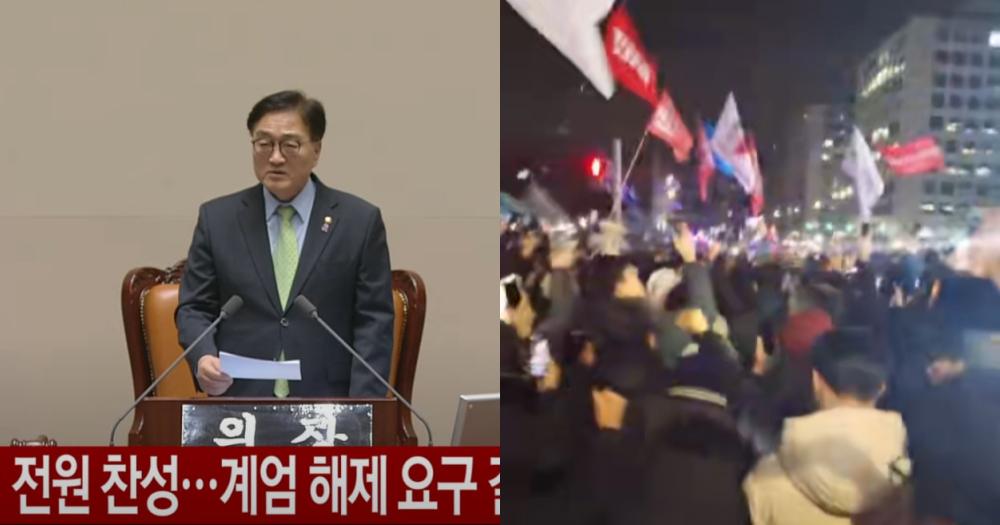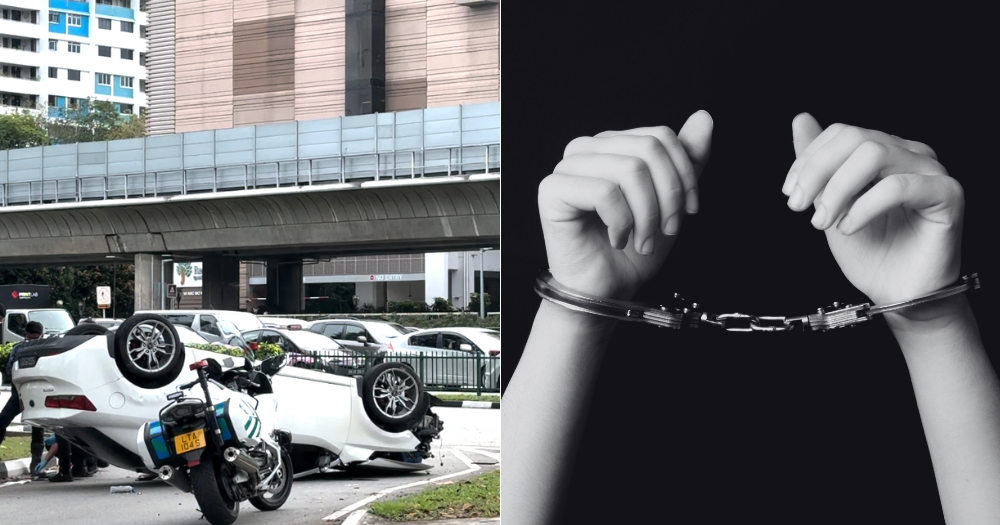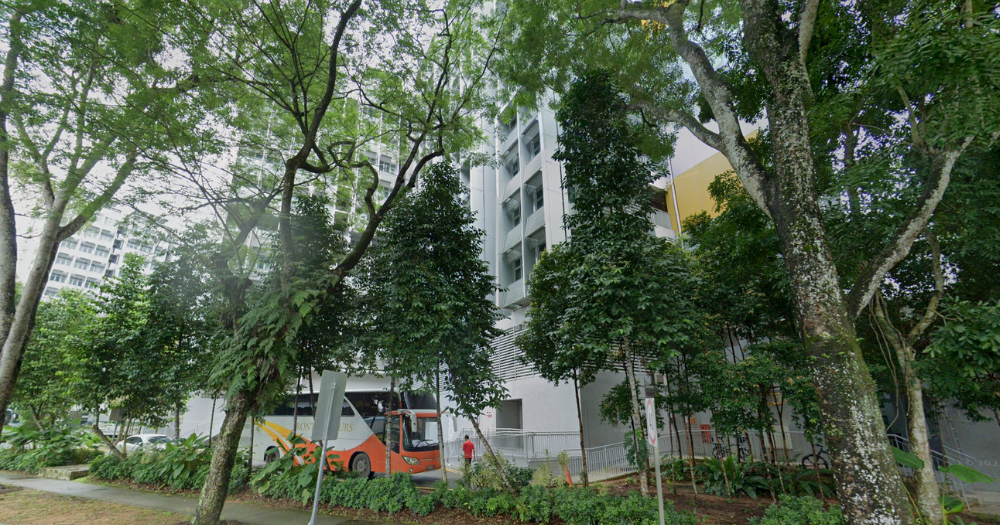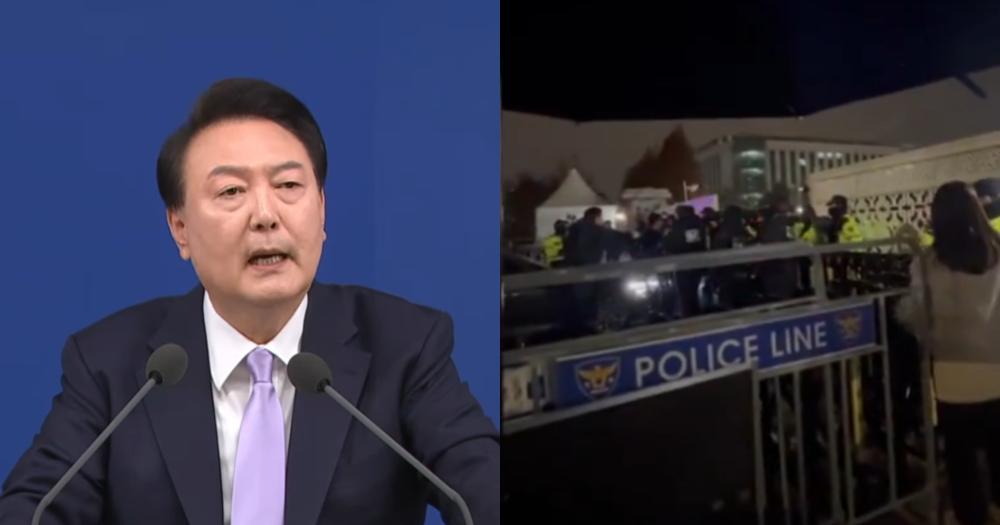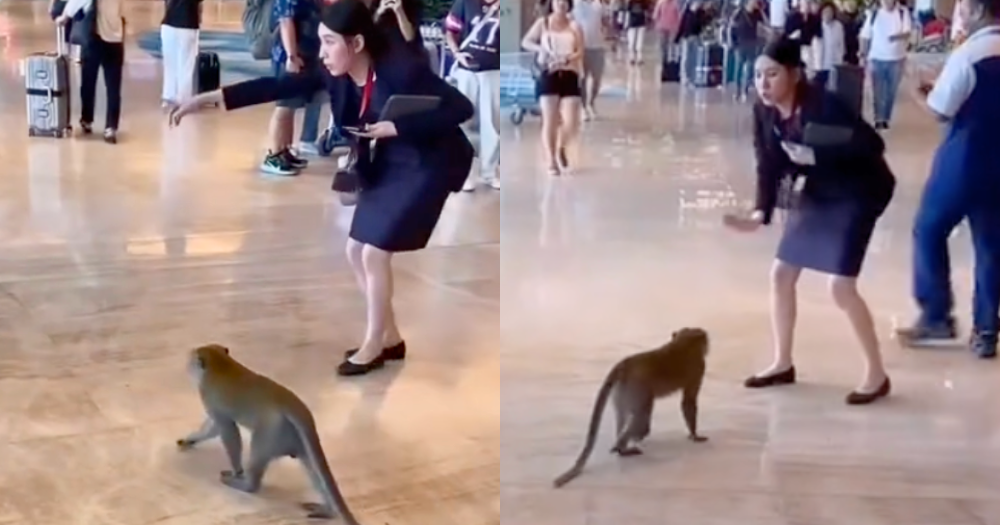Court rejects bid by Iris Koh & Raymond Ng to remove ex-NMP Calvin Cheng's Facebook post
Cheng's Facebook post revolved around Covid-19 vaccination.
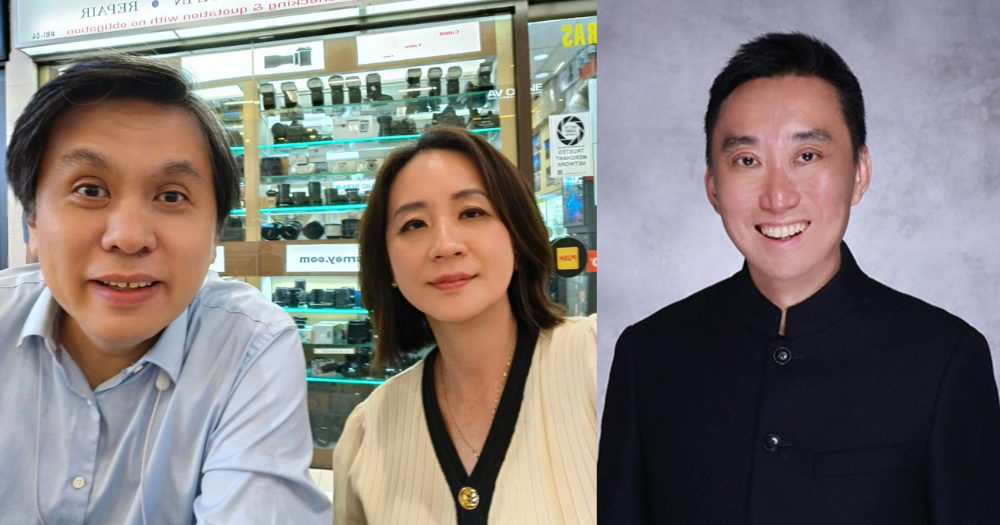
A Singapore district judge dismissed an application filed by Healing the Divide founder Iris Koh, her husband Raymond Ng, and three other claimants against former nominated member of parliament and businessman Calvin Cheng on Dec. 3.
The five individuals applied for an interlocutory injunction that would, amongst others, require Cheng to remove an allegedly defamatory Facebook post regarding Covid-19 vaccination published on Jun. 21.
The application is part of an ongoing civil defamation lawsuit filed by the claimants, which included former Progress Singapore Party (PSP) politician Bradley Bowyer, against Cheng.
In the interim decision, the judge said he rejected their application because he found that Cheng's statements in the post "are not clearly defamatory" and there are possible applicable defences Cheng could raise.
Concurrently, the judge also allowed Cheng's application to strike out the claims of three claimants, namely Ng, Bevan Tey, and Chan Swee Cheong.
Besides striking them out "in the interests of justice", the judge also ruled that the trio's claims "disclose no reasonable cause of action" and "constitute an abuse of process of the court".
Accusations
According to the judgement seen by Mothership, the claimants had accused Cheng of "making false and defamatory statements" in his Jun. 21 Facebook post.
The claimants submitted that Cheng's post meant that they "possess a malicious intent to cause death, akin to the criminal act of killing, which suggests a deliberate and premeditated act of harm".
They also contended that the post's innuendo meaning was that the claimants were "involved in actions with the intent to cause death or severe harm to individuals".
As this portrayed them "as malevolent and dangerous individuals", the claimants argued that Cheng's post had "severely damaged the claimants' reputations".
They added that Cheng's depiction had also "led to public condemnation, social ostracisation, and potential professional repercussions" for them.
Sought damages
Besides applying for the injunction, Koh and Bowyer, whose names were explicitly mentioned in Cheng's post, also sought damages in the sum of S$100,000 each.
According to them, this sum serves to redress for harm caused to "their reputations and emotional well-being".
Meanwhile, other claimants seek damages as "determined by the court".
On top of these demands, the five individuals also requested Cheng to issue a public apology and a retraction on his Facebook page and other platforms where the alleged defamatory statements were made.
Why injunction application rejected
One reason the judge rejected the claimants' application for an injunction was his finding that Cheng's statements "are not clearly defamatory".
To determine the meaning of Cheng's statements, the judge said it is "necessary to examine them in context", which included the People's Power Party's statement on Covid-19 vaccines and Ministry of Health's rebuttal.
The broader context also included messages sent by Koh and Bowyer on social media, which called Cheng a "monster", "Nazi", and someone "in service to evil".
Against this backdrop, Cheng contended that his statements meant that Koh and Bowyer are "literally" putting the lives of people who believe their anti-vaccination and anti-vaccines claims at risk of death from Covid-19 infection.
In his findings, the judge agreed that Cheng's statements "are capable of the meaning as submitted".
He also ruled that Cheng's post "could be objectively understood to mean that [Koh and Bowyer] should be stopped from advising the public not to take vaccines" in view of the dangers highlighted.
Possible applicable defences for Cheng
The judge also agreed that Cheng could raise the defence of right-of-reply privilege and fair comment in this case.
For the former, Cheng contended that his statements were to repel the aforementioned "public attack levelled against him [by Koh and Bowyer]" on social media.
As these messages "disparaged his reputation" and "impugned his integrity", Cheng submitted that the defence of a right-of-reply privilege cannot be ruled out completely.
Similarly, for the fair comment defence, Cheng argued that his statements were comments, as they were "deductions, inferences, conclusions, remarks or observations from the facts" set out in his post.
As Cheng's post also concerned a matter of public interest, the judge found that "it cannot be said that there is no possibility that the defence of fair comment would apply".
Why strike-out application allowed
While Ng, Tey, and Chan were not named in Cheng's post, they argued Cheng had "drawn a clear association with individuals who had been part of the public discourse around Covid-19 vaccines" by using "these people" and "bunch of clowns".
In response, the judge listed two factors that may determine whether Cheng's statements were referring to the claimants, namely the group size as well as the generality and extravagance of the words in question.
In the case of "bunch of clowns", the judge said the membership of the group was "ill-defined" and "plainly indeterminate" based on the claimants' affidavits:
"If the 'bunch of clowns' group is equated to the group of subscribers of the [Healing the Divide] Telegram channel, [Cheng] says that screenshots of the Telegram channel show that it has 4,310 subscribers. [...]
If the 'bunch of clowns' group is equated to people who oppose and refuse vaccinations, as suggested [by Koh in her affidavit], the membership of the group would number 60,000. [...]
The three claimants have also characterised the 'bunch of clowns' group as 'individuals who had been part of the public discourse around Covid-19 vaccines'. The number of such individuals would be imaginably large."
Furthermore, as "bunch of clowns" is a generalisation and "implies extravagance", the judge ruled that "a reasonable reader would not understand [Cheng's] words to refer to the three claimants".
Costs awarded to Cheng
For failing to apply for interlocutory injunction, Koh and her fellow claimants are required by the judge to pay Cheng S$8,000, along with Goods and Services Tax (GST).
As for Cheng's successful striking-out application, Ng, Tey, and Chan are ordered to pay him S$2,500 plus GST.
Following the judgement, Cheng published a Facebook post on Dec. 3 afternoon, stating that he intended to pursue "these costs to the fullest".
In the comments section, he also added that the ruling does not necessarily bring the case to an end, as the remaining claimants can choose to continue with their lawsuit."In which case, I will defend [myself] to the fullest, with mounting costs that I will claim from them when I win," wrote Cheng.
Cheng also noted that Ng's Facebook has been taken down.
Koh's statement
In response to the judgement, Koh also issued a statement on Dec. 3 evening, stating that she and her fellow claimants read it with "great disappointment".
With regard to the judge's rejection of their injunction application, Koh said they would "need to read the grounds of [the] decision before deciding whether to appeal or not".
As for the judge's decision to allow Cheng's strike-out application, Koh and the claimants would "consider an appeal" based on the grounds of the decision.
Koh reiterated that the judge's ruling does not mean that she and Bowyer had lost their case against Cheng.
"The lawsuit Iris Koh and Brad Bowyer vs Calvin Cheng will continue with the same gusto," she wrote.
Related stories
Top images via Iris Koh & Calvin Cheng/Facebook
MORE STORIES












